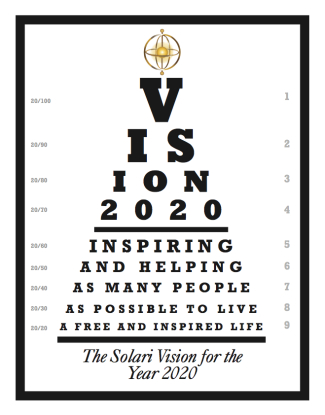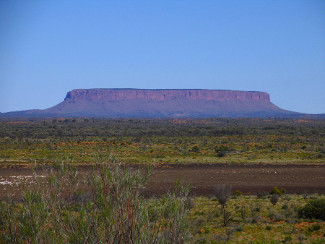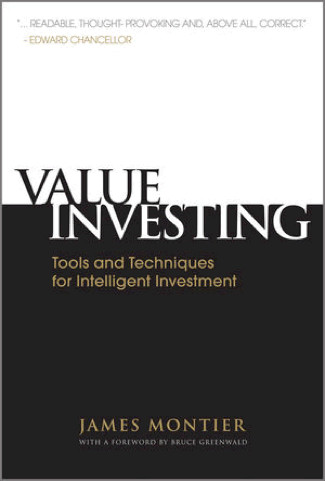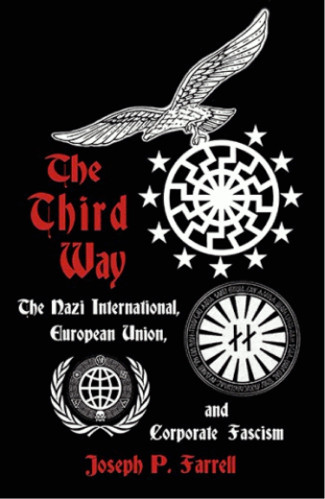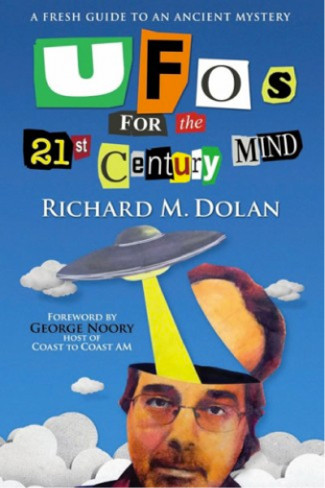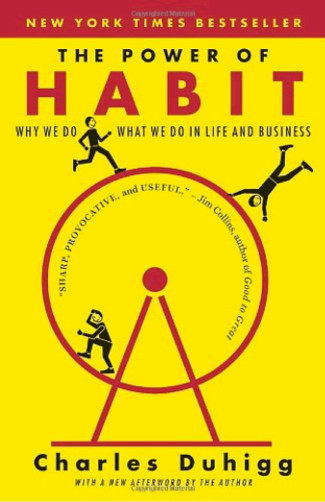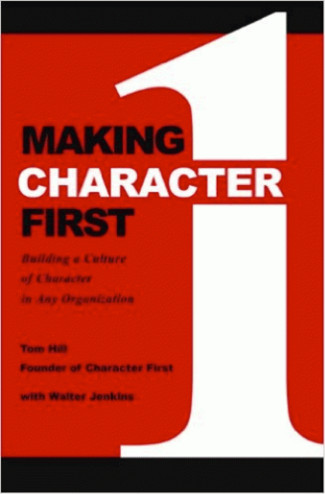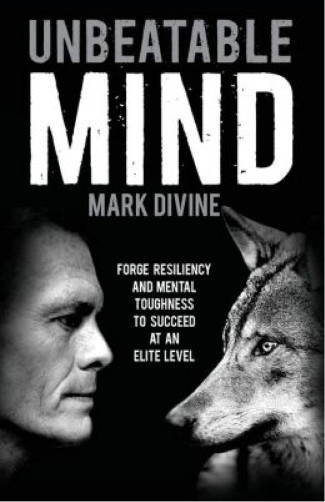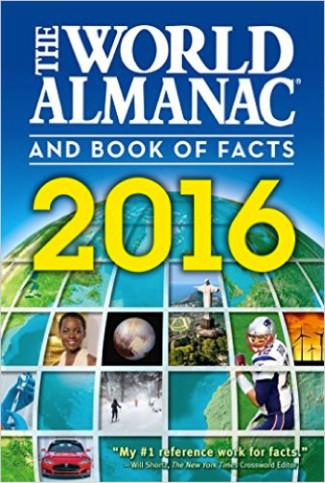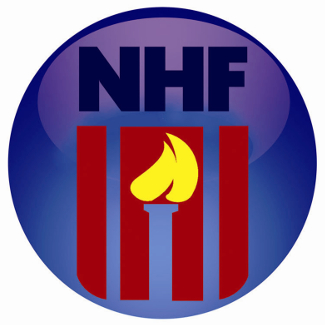Much of what I said in the 2014 Annual Wrap Up remains as relevant to 2016 as it was for 2015. So here are my very similar suggestions to energize your path forward!
A backcasting is a planning approach in which a desirable future is created. Then planning works back in time from the future to identify the actions that connect it to the present. You define how you successfully achieved your goals, inspired by the assumption that you will indeed succeed.
Although a map of the world around you is invaluable, the most valuable asset you can have is a coherent picture of your purpose and how you will live the life you wish to create.
When I was in Texas this year I met a man who had weighed 600 lbs. He looked like he had lost about 400 lbs. I asked him how he did it. Full of vitality, he said one word - "visualization."
Use a backcasting to visualize the future that attracts you in a powerful way.
2. USE SCENARIO PLANNING
For managing time and money, I use scenarios with estimates of probabilities.
Avoid whole-hearted commitments to highly specific predictions of an economic and political future. Predicting the future is prophecy. There is no more dangerous approach than getting locked into a fixed view of the future environment.
Use your strategic planning time to explore how you will be successful in the face of primary trends and multiple future scenarios. Prepare emotionally and mentally for a variety of feasible futures. Within the resources you have available, prepare financially, too. Identify the opportunities and risks in all of your reasonable scenarios. Think about wildcards.
This prepares you to respond opportunistically as events in the world and markets evolve.
In our 2013 Annual Wrap Up, I said the probability of the slow burn continuing in 2014 was 80%. That was what happened.
Last year, I divided the slow burn into two scenarios for 2015:
- Volatile & Violent Slow Burn (50 percent likelihood)
- North American Renaissance Slow Burn (40 percent likelihood)
I pointed out that some of what you experienced depended on whether you were in an area experiencing 3.0 reinvestment.
The other scenarios for 2015 were:
- 2008 Redux (1 percent likelihood)
- World War III or Environmental Disaster (8 percent likelihood)
- Transformation (1 percent likelihood)
As things turned out, the leadership assessment that the United States would help lead the world out of recession did not materialize. Which meant fewer areas in the developed world felt the benefits of 3.0 reinvestment, whether in North America or elsewhere. If anything the dirty tricks flew to ensure that North America looked relatively good and the general population continued to support government as a result of concerns about terrorism. While more violent than renaissance, the slow burn continued as the dominant scenario.
I am using the same scenarios for 2016. Here are the probabilities I am using for my planning for 2016.
Volatile & Violent Slow Burn (70 percent)
The fights over natural resources will continue. Increased covert economic warfare is getting nastier. In this environment, powerful players are way too volatile and violent for life to feel like the slow burn of the last decade. Compounding the volatility, creative destruction is dramatically eroding the value of some companies while producing large values on others overnight.
Last year I asked you to prepare for the US Dollar Index to rise by another 10% to 25%. It rose by 9.2%. Expect a strong dollar to continue in 2016. The pressure to keep it from rising above 100-105 will be intense, so I expect it to end the year in or near 95-100.
A continued strong dollar is putting numerous global dollar borrowers over a barrel, particularly among those who depend on commodities for their revenues.
The Fed will continue to raise interest rates quarterly. They will be prepared to turn on the QE tap if the problems with global liquidity indicate it is necessary.
Events will feel scary, but they will provide opportunities to shift assets into quality global equities as well as some commodities when the time comes - which may take until 2017. Successfully defining quality will not be easy-because quality includes Global 3.0 skills and resources.
A lot could fall apart, starting with relationships in the European Union and the US relationships with a variety of allies in NATO and around the world. US leadership will not inspire confidence at home or abroad. Americans will worry a lot about bank deposit insurance and the reliability of their pension funds and social security, but the chances of a widespread compromise of bank deposit insurance or corporate and municipal pension funds experience is unlikely in 2016.
However, after the US presidential election, we face more radical changes in the federal budget, which could entail significant impacts on taxation, assets and savings.
For 2015, I am assuming a 70% likelihood of a Volatile & Violent Slow Burn - that is up 20% from last year. Growing deflationary trends will inspire way too much in the way of false flags, terrorism and dirty tricks for things to be comfortable. Add mass migration in many areas in the developed world, and it is clear many areas will experience a difficult environment.
North American Renaissance Slow Burn (10 percent)
In this scenario, energy self-sufficiency and rebuilding the industrial base in combination with its geographic advantages permit the United States to allow the global unraveling to work to its financial and economic advantage.
Violent covert operations may be engineering events around the world but these actions will be limited in areas of North America critical to the Global 3.0 economy.
Many consumers benefit from deflationary forces-low-cost imports, lower energy prices and continued low commodity prices that protect against price increases of essential goods and services. New technology will add enormous productivity-although the benefits will accrue to shareholders and labor will experience continued stagnation or deterioration in real income. Immigration will address shortages of skilled labor, replenish intellectual capital and keep the "demographic winter" at bay.
Divergence in the economy will continue. The economy will be strong in areas enjoying Global 3.0 reinvestment and innovation in applied technology and weak elsewhere. The areas left behind will continue in an economic depression kept afloat by government subsidies. In these areas, life expectancy will continue to fall.
U.S. weaponry and military standing will make it possible for the U.S. to manage the Treasury and derivatives markets, despite market jitters and some unpleasant moments.
Re-engineering of the financial sector with online systems will continue to squeeze financial providers, fees and employment. Financial repression will continue to ensure successful management of retirement liabilities. It will be offset by an endless series of media stories regarding:
- The strength of selected sectors in the US stock markets. Corporate profits will still struggle in the face of a rising dollar on exports and reporting of foreign income but health care, biotech and technology will continue to show relative strength as well as housing during a presidential election),
- The accomplishments of American technology, and
- The success of young people and immigrants.
There will be no renaissance for the boomer generation and low-income Americans. The squeeze will be relentless for those who do not adjust to the new environment. The targeting of low-income people will continue to support a shift of government subsidies and housing to support immigrants and to ensure continued Republican success at the polls.
One of the tensions in this scenario will be between, on one hand, the breakaway civilization and the hidden facilities and governmental operations financed with the black budget and, on the other hand, the overt economy. How will Congress reengineer the federal budget in the face of the secrecy? This is one of the reasons that the long-term continuation of the United States as a unified political entity will continue to be questioned during 2016, renaissance or no renaissance.
Finally, the economies of the United States, Mexico and Canada will continue to integrate rapidly, financed in part by expanding access to US street drug markets by the Mexican drug cartels.
For 2016, I give the North American Renaissance scenario a 10-percent likelihood. That is a significant reduction from 40 percent last year. The difference is due to the continuing drop in income by commodities producers, the resulting problems in the bond and derivative markets and the general deflationary trends. Contributing to this is the inability of the leadership to manage the economy without covert violence and migration. Expect violence to increase in 2016, exacerbated by factionalism during the elections.
While this scenario may feel safer to some, it presents fewer global investment opportunities than the volatile and violent slow burn - which is another reason that the volatile and the violent is more likely to happen for now. Insiders make more money with volatility.
2008 Redux (7 percent):
The financial coup is over and the majority of the civil and criminal liabilities have been extinguished. This has left a variety of investment interests in a very strong position. Other than environmental or geophysical problems, there are few reasons why we would face a near financial collapse or collapse unless it is desired or the economic warfare gets out of hand. However, in that case, war is the likely scenario.
Figure a 7-percent chance of a repeat of the last financial crisis, an increase from 1 percent last year. This increase is attributable to obvious speed bumps we are hitting moving to a multipolar world and the number of events in 2015 that inspired me to state that numerous major governments and businesses were not under "adult supervision." Donald Trump is reason enough for serious investors to pull their money out of investment in the United States.
Expect this probability to increase for 2017, after the U.S. Presidential elections.
World War III or Environmental Disaster (12 percent):
A globally devastating war is not in anyone's interest. Neither is an environmental disaster that could destroy the viability of a large part of the planet. However, the proliferation of weaponry and the tensions in a world where markets increasingly adjust through violence (banker and natural doctor deaths) rather than price means that a nuclear war or significant EMP attack could happen as unraveling accelerates. Although I have no idea what the risks of devastating solar flares, space weather or weird weather are, the fact that there has been a trillion dollar global spraying program since the mid-90's and too many unanswered questions about Fukushima have me concerned.
I give this scenario a 12% probability, increased from 8% last year.
The significant investment in finding viable planets and colonizing Mars indicates that the G-7 leadership appreciates that a 10-percent chance of such an event over a sufficient number of years can grow into an unacceptable risk.
While the probabilities of war or global disaster are not high in 2016, the chances of an interruption in services in local areas is high (power outages, weird weather). So, don't laugh at the preppers. You want to have resiliency in your personal arrangements and disaster recovery plans for your home and business. Whether addressing disaster recovery, cyberhacking, fire and theft or increased regulatory enforcement, please keep excellent, multiple copies of your financial records.
If you are in an area experiencing heavy migration anticipate and be prepared to manage a higher level of petty and organized crime.
Transformation:
A transformation in global spiritual and cultural consciousness could shift our entire outlook.
I give this scenario a 1% probability in 2016. That is the same as last year.
The likelihood of transformation will rise as the global unraveling of the current order continues and we discover that the only way to attract people and enterprises that practice the golden rule is to practice it ourselves.
So keep praying!
I encourage you to invent your own scenarios and welcome you to post in the comment section.
Dealing with the US Presidential Elections
If you are a US citizen, one New Year Resolution you should make for 2016 is to strictly budget the amount of time and money you spend on 2016 federal, state and local elections.
Let's say you budget twenty hours for the year. Add a resolution to spend 80% or more of your time and campaign donations making sure you are registered and learning about and supporting great local candidates. Since real economic control is engineered one community at a time, your local, state and US congressional representatives are critical to your governance and the governance of the country.
Let's say that leaves four hours for the presidential elections. Here are recommended guidelines to help you make a sound choice with that amount of time:
Guideline #1: Focus a Week Before:
Decide as to whether you will vote and for whom in the week before the primary in your state and a week before the general election.
Guideline #2: Entry-Level Positions:
The Presidency of the United States is not an entry-level position. Ignore any candidates without serious political and government experience.
Guideline #3: A Multipolar World Favors Youth:
Anyone over 50-55 years of age has been trained to function in a uni-polar world. They do not have the physical stamina or practical experience to thrive in the multi-polar world now emerging. Choose someone who has the capacity to lead on the road ahead by eliminating anyone over 50-55 years of age.
Guideline #4:
Now that you have simplified the choice by adhering to Guidelines #1-3, assess the character and history of the eligible candidates that remain. Look at the quality of the people they attract and hire. In addition to staffing the top positions in the Executive Branch, the next President is likely to lead the choice of 4+ nominees to the Supreme Court. Do they believe in and are they attracted to a successful future? Go to http://opensecrets.org and review their personal finances and campaign funding. While their policy statements and promises may be interesting, the reality is that the winner will adhere to what the machine and financial realities require of them once in office.
Risk Management: This is for all global citizens. Add one more action to your New Year planning. For your scenario planning for 2016, choose the two candidates whom you believe would be the very worst for the United States, for your country and for you and your family. Build a scenario for a victory for each of these candidates with the worst possible consequences. Now, prepare a plan for what you will do if that were to happen. Once you have a plan for the worst case, you can stop fretting about it. Fretting increases the chance that you will waste time on election coverage and its related media entrainment and subliminal programming. The actual results in November will tell you what you have to do to revise your plans between November and a January 2017 inauguration.
In 2016, use your precious time to build health and wealth for yourself and the people you love. Any attention you give to the 2016 US presidential campaigns (beyond that which ensures that you exercise your responsibilities as a citizen) is at best a distraction. At worst, it is an expensive drain and theft of your time.
Financial Markets
How do these scenarios and the presidential elections translate into expectations for the financial markets?
International Equity Markets:
Expect Northern European markets to outperform US equity markets in 2016. Otherwise, opportunities in the G-7 and emerging markets will likely be spotty until the dollar reaches a top. At that point, there may be significant opportunities to shift to markets with lower P/E's and greater long-term earnings and dividend growth potential.
Bank Deposits:
As a practical matter, I am not concerned about the viability of the FDIC system. However, it is essential to ensure that you use banks that are financially sound, as bail-ins will happen on a limited scale. The chances of interest rates rising sufficiently to give savers a reasonable return are still remote in 2016.
Housing:
In areas enjoying foreign investment or Global 3.0 investment, housing prices are going to continue to rise particularly in the United States during a presidential election. Make sure you do not get shut out of the market by waiting if you want to own a home.
US Stock Market:
Last year, I said there was a good chance that the US stock market would continue to be strong, but it was unlikely to match the 2013-2014 performance. In fact the S&P ended slightly down for the year, which means returns were essentially limited to dividends. In 2015, dividends mattered. Expect the same in 2016.
I said that a 10 to 25% correction was long overdue, and not to be surprised if it appeared in 2015. It did.
I expect that the bull market in US equities is not over, but the market is not strong and we are in for more consolidations and volatility.
Stick with companies with strong leadership and balance sheets that provide useful products and serves in a productive way that can support ongoing dividends. Forget glamour and focus on solid fundamentals.
The application of new technologies have the potential to have a very dramatic impact in the equity markets over the next ten years, including a "crash up" scenario in which the major indices could double or triple.
This is unlikely in 2016, but keep an eye on the high tech sectors to see what develops and how it translates into new applications in traditional industries, such as self-driving cars or restaurants with robots and how that translates in equity shifts between Global 2.0 and Global 3.0 stocks.
In the first trading day of 2016, the U.S. market was down by 2 percent. However, the 3D printing stocks that had dropped significantly in 2015, were up 5 to 10 percent in the first day of trading.
Watch for lots more divergence in the equity markets in 2016.
Precious Metals:
My comments are going to sound just like the last few years of Equity Market and Precious Metals Reports.
If the dollar remains strong, gold and silver will continue to be under pressure. If the gold price breaks below the $1,000 line it could drop as low as $700. That probably will not happen as physical demand in Asia and geopolitical instability has the gold pricing hugging a floor.
Physical demand is the reason why I believe the primary trend will reassert-but that could take a while. New technology could also throw a ringer into the mix. Expect gold to move lower in a crash up scenario.
In the meantime, hold your core position and appreciate that the chances of attractive precious metals investments in 2016 are currently small. If the volatile and violent slow burn gets violent enough, that could change.
3. ADDRESS THE RISKS
For those who live in the United States, we are managing serious risks that need to be addressed now on an ongoing basis. Each person's circumstance is different, so adjust accordingly. Some of these risks will translate to the other G-7 nations.
Education
The US K-12 public education system is not preparing your children to compete in a global marketplace. You need to make alternative arrangements for your children and grandchildren. If you are unable to do so, you must aggressively protect them (at the very least) from what you believe to be unnecessary vaccine and other programs and from invasive surveys and online systems. Ensure that they will receive a real education at night or on weekends. Whenever possible, arrange opportunities for them to travel and to live abroad and to learn other languages. Also, make sure that they learn practical skills: how to fix a car, household repairs, how to make and build things, not to mention math and financial literacy.
Do whatever it takes to avoid student loans. From the time a child is born, organize Christmas and birthday presents to be contributed to a 529 plan or a savings vehicle. Have children live at home or work part-time. Teach them to save and invest.
Arrange for them to spend extended period outside the reach of smart phones, Wi-Fi and media that delivers entrainment and subliminal programming.
Software and Hardware
Trying to create privacy in this world is next to impossible. Nevertheless, appreciate that many information and communication systems are deeply compromised and do the best you can to protect your information and financial account access from identify theft and other forms of compromise.
Health Care
The health care system is diverging in quality and subject to increased regulatory controls that result in the promotion of therapies that may not be cost effective or ideal. You are going to need to be proactive to assume responsibility for your own health, to invest in building up your immune system and removing toxicity. Ensure that you have relationships with medical providers that you can trust. I continue to research medical tourism for options abroad.
Mobile Payment Systems
Ditto for mobile payment systems: be very careful. It's Ok if they steal your Starbuck's card, but not if they gain access to your bank account.
Fresh Food and Water
Get radical about ensuring your access to fresh food and quality food at affordable prices. This is the most important aspect of your health care.
Environmental Pollution
My two cents is that I am on a detox program that never ends.
Wildcards: 1-3 Months on Your Own
Have provisions and a plan for living for 1-3 months without power or well-stocked grocery stores. Keep redundant copies of financial records in safe places. Katrina can happen.
There is No Away
Your problems are not likely to be solved by going far away to a new place where you are a stranger. Yes, there are thousands of lovely places in the world, including ones where you can live at low cost in a healthier environment. They may work for you particularly if lower costs and a better health care plan will make a big difference. However, be careful about assuming foreign lands can solve your problems and do your due diligence of potential destinations carefully. The aspects of Mr. Global's plans that we do not like are, in fact, global and, as tensions rise, you may not always be welcome.
Filter, Filter, Filter
This was important when I said it last year. It is even more important this year.
Take greater care with your associations: people, vendors, and partners as well as your sources of information. The times require much greater discernment in all things.
Associate with people who have high standards of person integrity. Ideally, they are also people who have a high immunity to entrainment and subliminal programing
Surrounding yourself with people who are competent and ethical in this environment could literally be the difference between life and death.
In Closing
You are safe when you are serving your purpose for this life and being useful to the people around you. So proceed to attract the future you have visualized and, in so doing, have a wonderful 2016.

